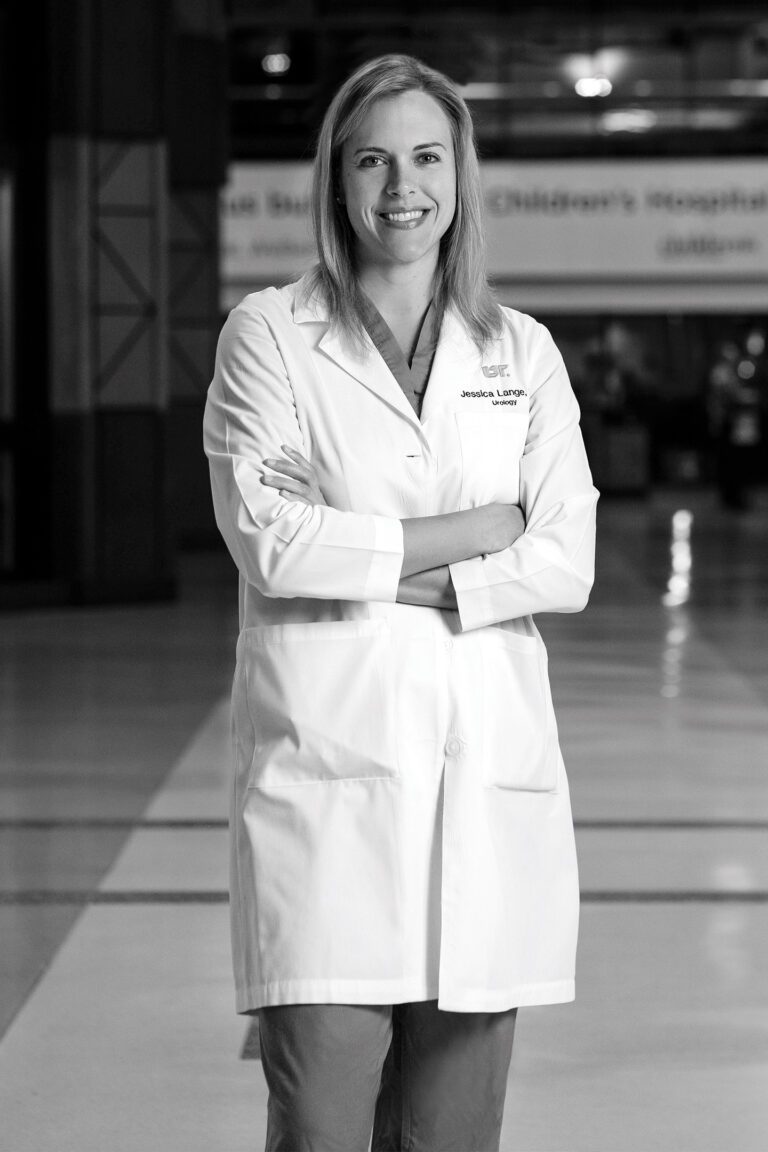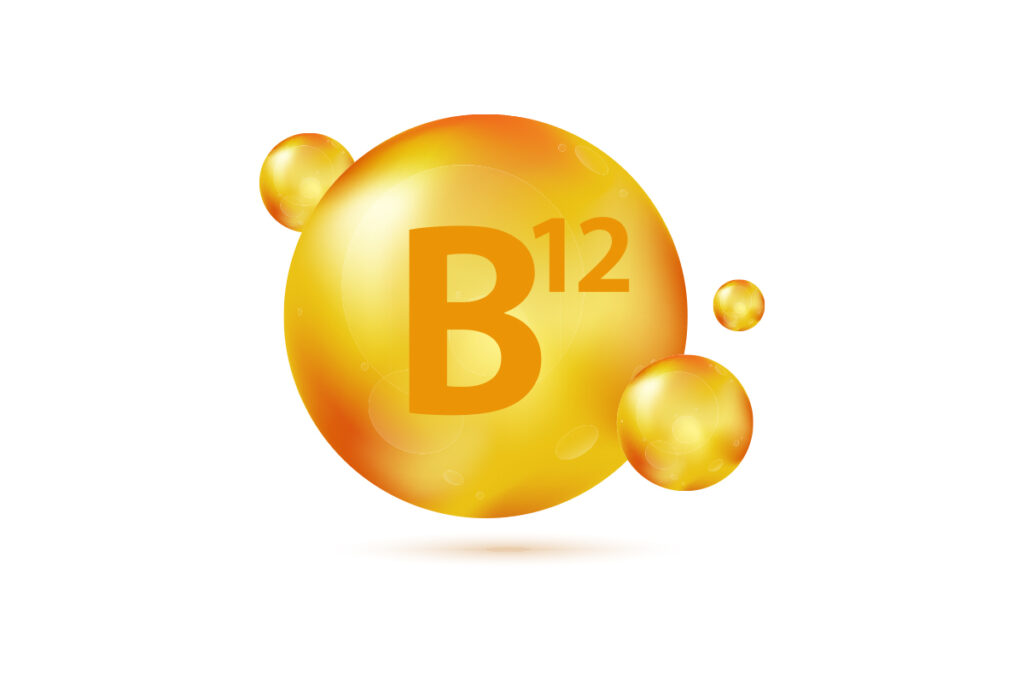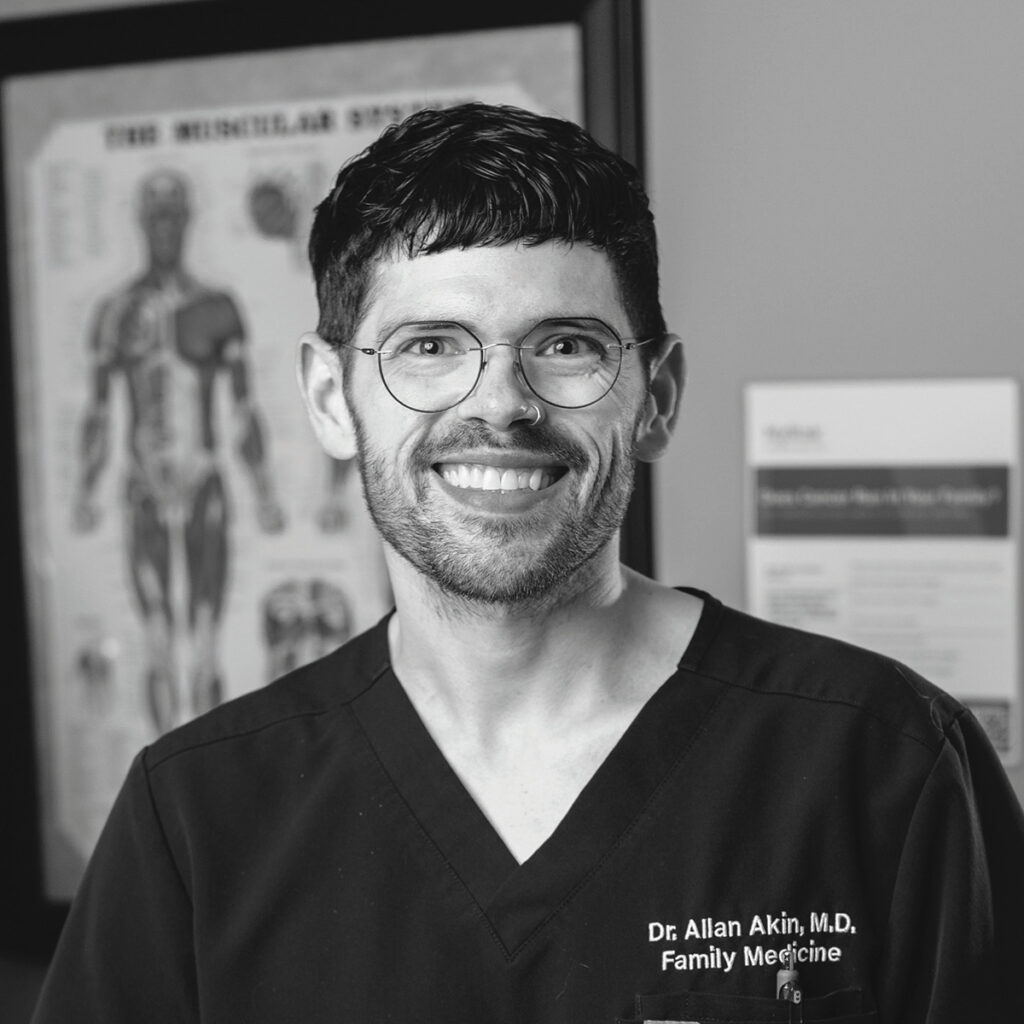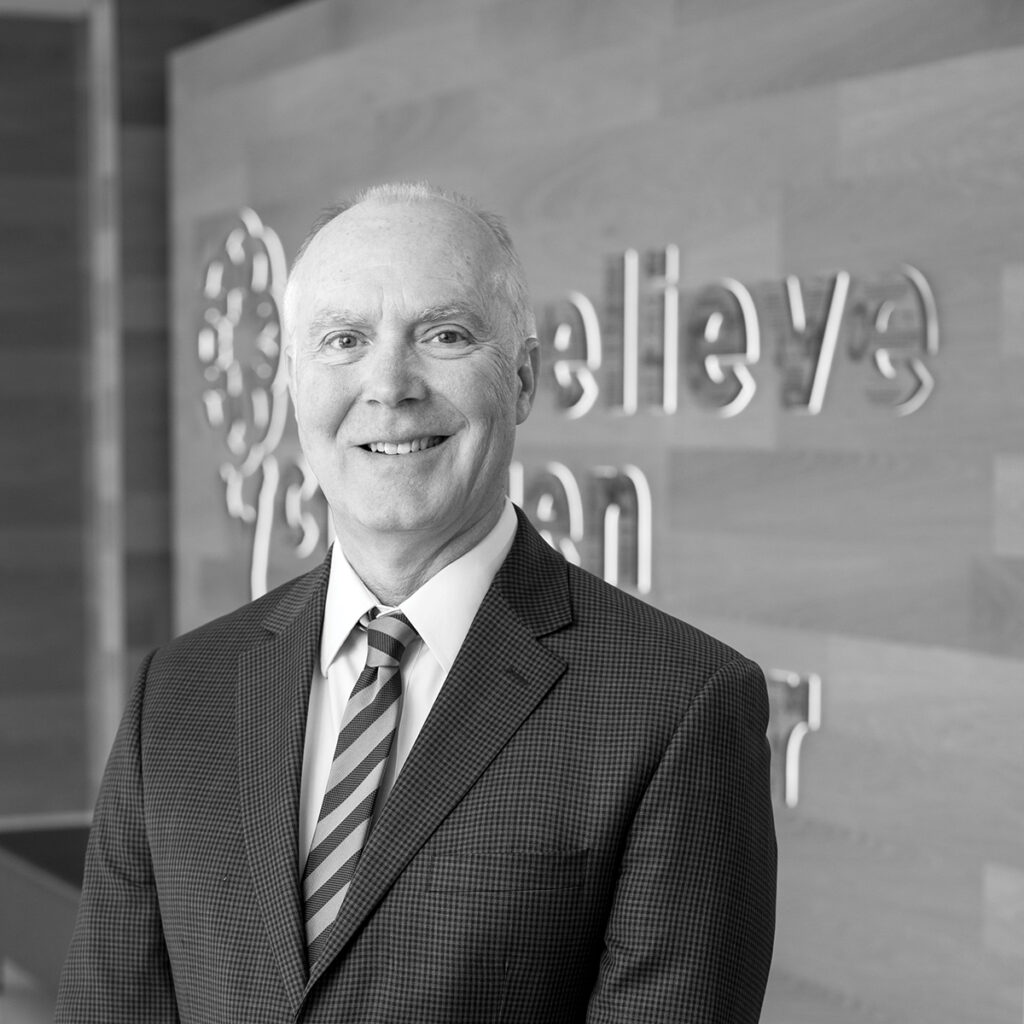Erlanger Urology
Alleviating & Preventing Pain
If you’ve ever had a kidney stone, you likely remember the experience. For Dr. Jessica Lange of Erlanger Urology, treating kidney stones is her specialty – and she uses the latest tools and her own expertise to address the problem. “I enjoy treating kidney stones because I can help ease patients’ current pain and help prevent future painful stone passage episodes,” Dr. Lange says. “I get to help my patients medically (by evaluating why they might be making kidney stones) as well as surgically (removing the stones).” She credits her ability to listen and explain things clearly as strengths, finding them most useful when facing an upcoming surgery. “I know having surgery can be scary,” she explains, “and I believe when patients know what to expect, it can curb some of the anxiety surrounding the operation.” Whatever the case in front of her, Dr. Lange strives to treat every patient like family.
My favorite thing is hearing about patients that are happy and healthy with the care they received."
My Credentials
Medical Degree:
The University of Tennessee Health Science Center – Memphis, TN
Certifications:
Board-eligible for Urology
My Specialties
Endourology
Metabolic Stone Disease

1. What sets your practice apart?
Erlanger Urology is a subspecialized urology practice where each provider specializes in a particular area of urology expertise. I think this helps us provide the highest quality and most up-to-date care to patients.
2. What is one of your happiest professional moments?
I love seeing patients who I met in the hospital at a low point in their life, suffering in pain and ill with a kidney stone, come back to the clinic and tell me their pain is gone.
3. What is your best advice for patients?
An ounce of prevention is worth a pound of cure. In my line of work, preventing stones is much easier than passing them or surgically removing them. Drink plenty of water and ditch the tea and soda!
4. What do you see as the most exciting new development for your profession?
As someone who does primarily minimally invasive surgery, our instruments are constantly evolving. We have had great advances in digital scope image quality with even smaller, less traumatic scopes and better laser technology.
5. What's the key to making a great first impression?
Smile, look the patient in the eye, and listen to what the patient has to say.
- 423.778.5910
- 979 East 3rd Street, Suite C925, Chattanooga, TN 37403
- 1755 Gunbarrel Road, Suite 209, Chattanooga, TN 37421
- 2158 Northgate Park, Building 2, Suite 104, Chattanooga, TN 37415
- erlanger.org/urology




